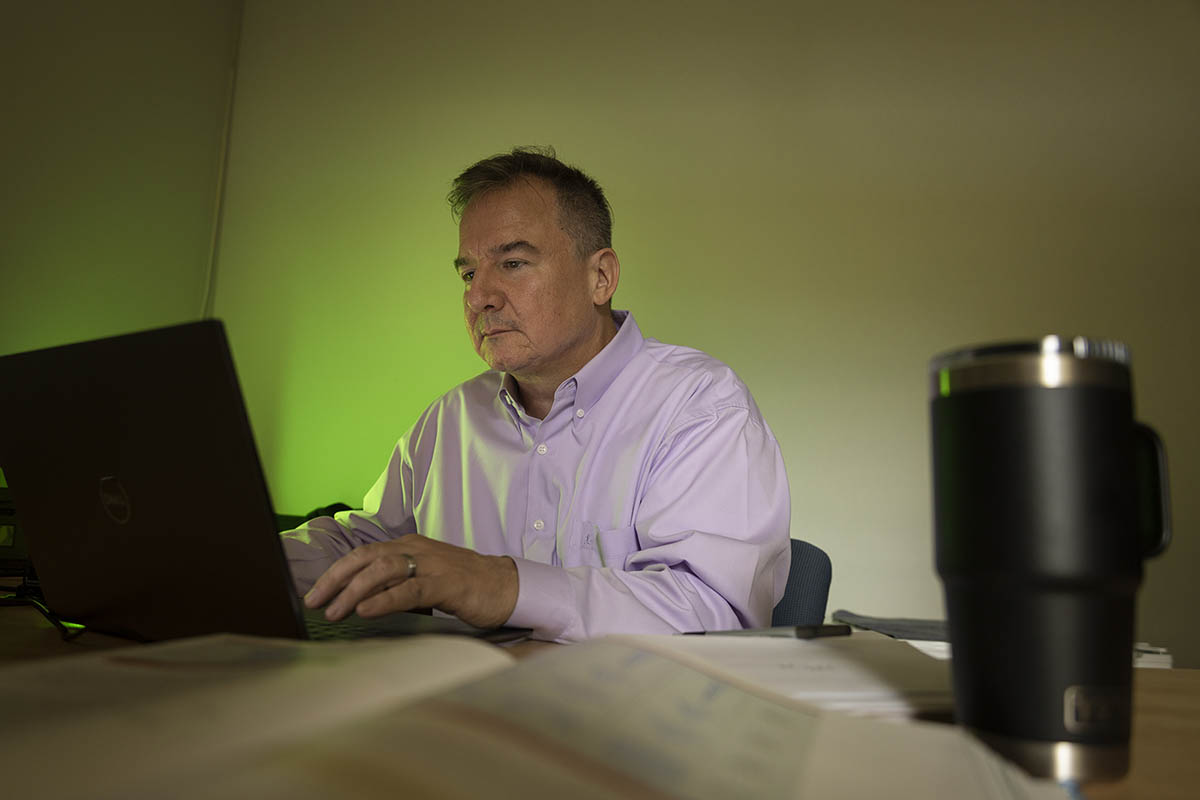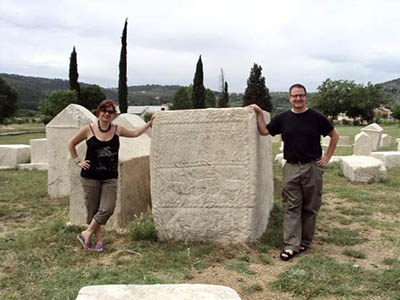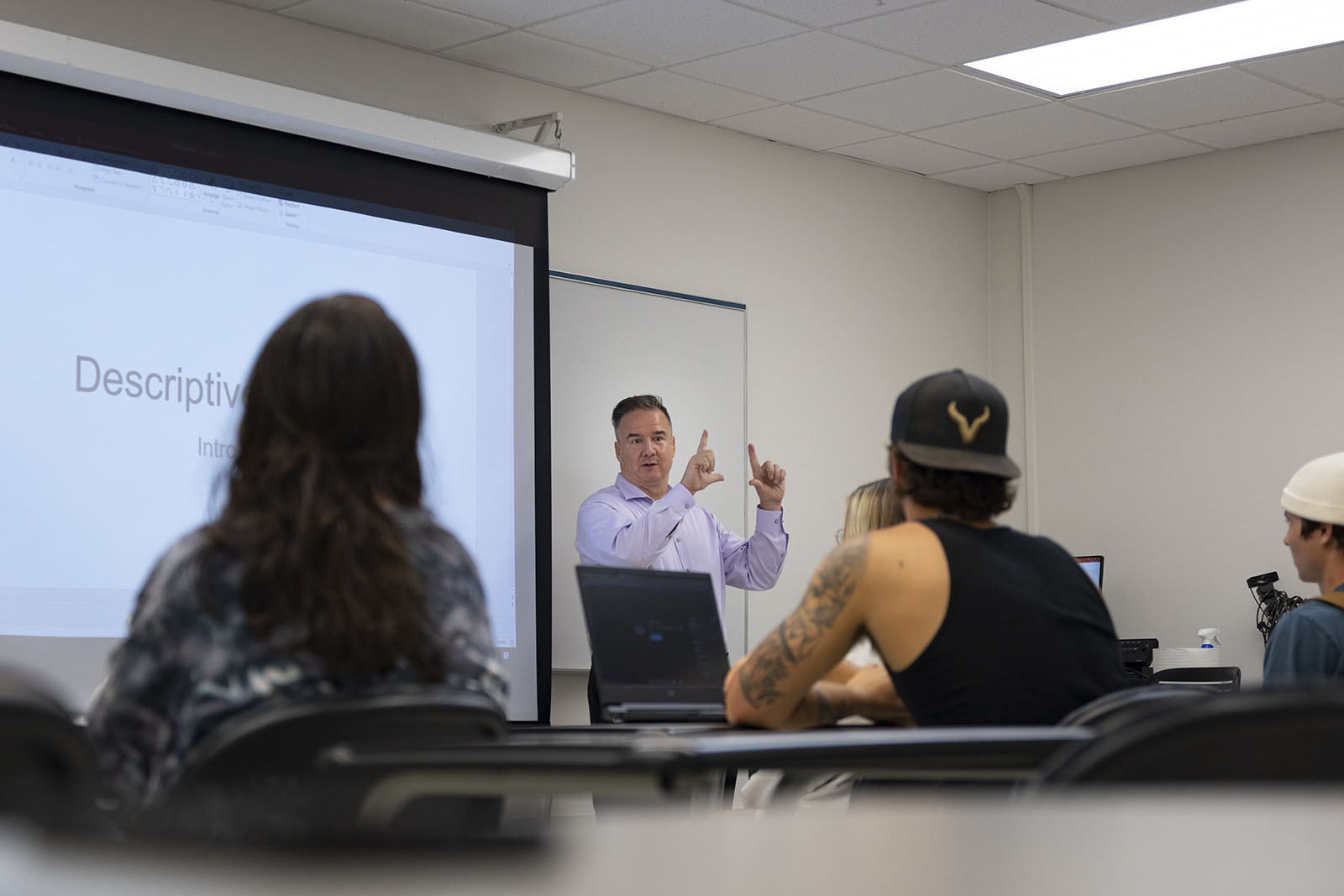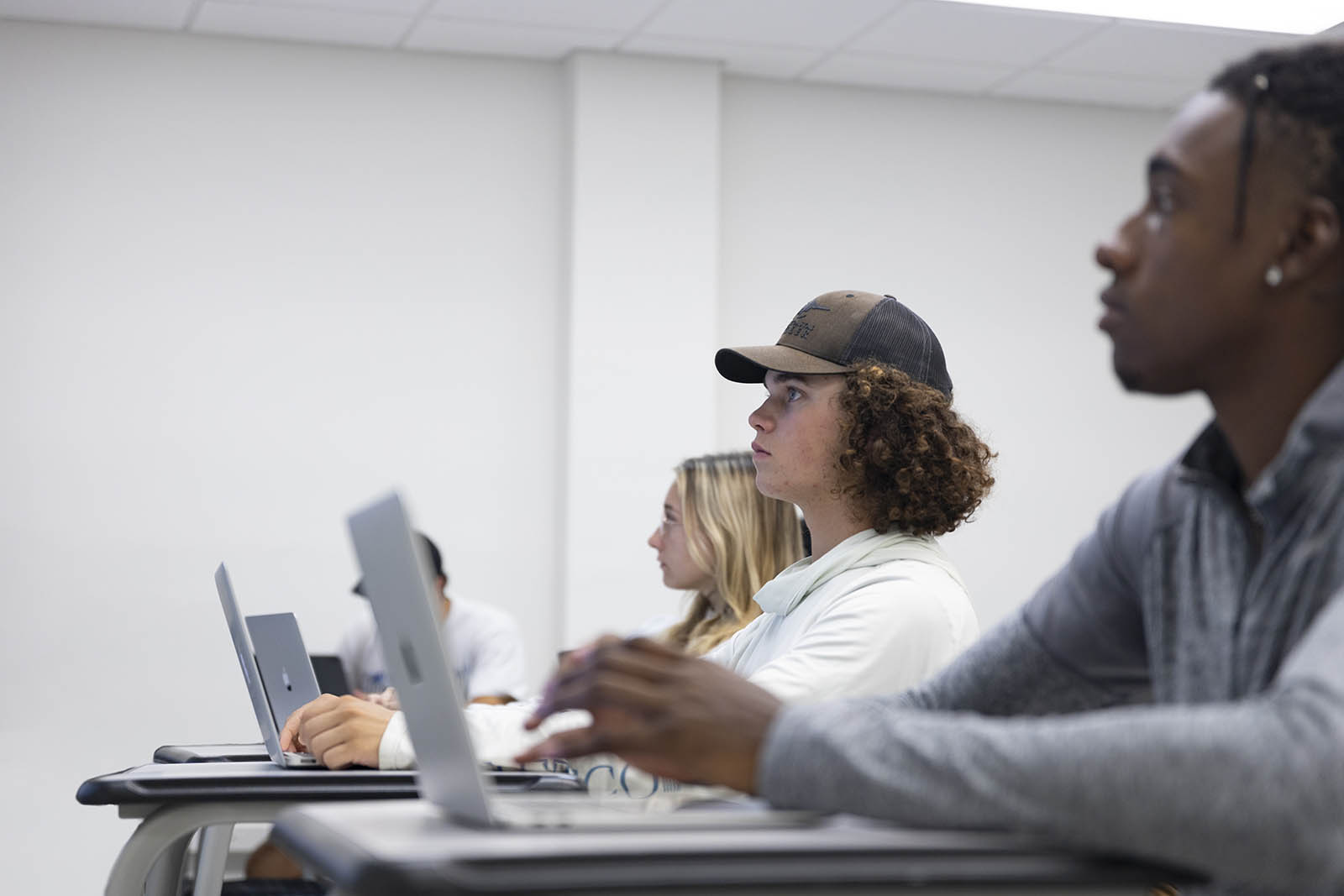
Assistant Professor of Management Thomas Lombardi works in his office in Forrer. Photo: Penh Alicandro ’22
Thomas Lombardi earned a bachelor’s degree in history at SUNY Geneseo, a master’s degree in history at Fordham University, a master’s degree in computer science at Pace University, and a Doctor of Professional Studies degree in computing studies, also at Pace.
And then Lombardi, who is beginning his first year as an assistant professor of management at Eckerd College, set out on a little expedition.
After completing his doctoral work in computing, he and his wife moved to eastern Bosnia in 2008 to teach information systems at the American University in Bosnia and Herzegovina. He developed a service learning and outreach program in which information technology students provided basic computer training and support services for Bosnian war widows, so they could communicate with their remaining family members.
During their time in the Balkans, the Lombardis traveled to every ancient and medieval castle, church, temple, mosque and ruin they could find, from Pécs in Hungary to Hierapolis in Turkey. After returning to the U.S., Lombardi taught computing and information studies at Washington & Jefferson College in Pennsylvania from 2013–2016.

Exploring the Radimlja necropolis in Bosnia and Herzegovina. Photo credit Thomas Lombardi
But by 2017, he was on the road again, this time teaching information systems and technology at the University of the Virgin Islands, where he also served as IT manager and software developer at OrangeWave Innovative Science, LLC.
While at UVI, part of his focus was on the information systems required to support the Virgin Islands Robotic Telescope at Etelman Observatory. Located on St. Thomas island, the Observatory is an astronomical and geophysical facility owned and operated by UVI and is the easternmost observatory in the U.S.
Management, computer science and history. “It’s a weird story,” Lombardi says with a chuckle. “In high school I had the dual interest in history and computing. At that point it didn’t occur to me that they would ever go together. But all three are connected in a lot of ways. And that spirit that made me try to unite them is the same spirit I see at Eckerd.”
His varied experiences, Lombardi says, helps prepare students for productive lives and successful careers “by requiring a variety of approaches to match the diverse student population. In addition to the mastery of course content, students must learn problem-solving skills, critical thinking, quantitative reasoning, effective communication, resourcefulness and professionalism in order to thrive in the many roles and responsibilities they will assume in their lives.
“Students develop these skills by combining the rigors of technical education with the goals of liberal education,” he adds. “Most importantly, students learn to place their technical knowledge in the service of human progress.”
Lombardi’s past research includes studies in digital humanities, bioinformatics, and network science. Currently, he is investigating the role of trade secrets in small-business development.
“Over the last 10 years or so, trade secrets have taken on a more important role in the intellectual property portfolios of companies,” he explains. “This process is driven by court cases that weakened patent protections somewhat, and technology which is more and more dependent on data.
“Databases, code and algorithms are notoriously hard to protect with copyright or patents, so what is left is trade secrets,” he says. “Unfortunately, many small businesses do not have an adequate understanding of how to protect their growing portfolio of such intellectual property. Our research is designed to help small businesses get a handle on this changing landscape.”
The courses Lombardi is teaching this semester include Quantitative Methods, Stat Methods: Management and Economics, and Management Information Systems.
“I think my students can expect me to challenge them to use data to understand the real world,” Lombardi adds. “Data now has almost no real boundaries. You can study almost anything. So I’ll try to encourage and excite them with the possibility of learning about the world using data.”














